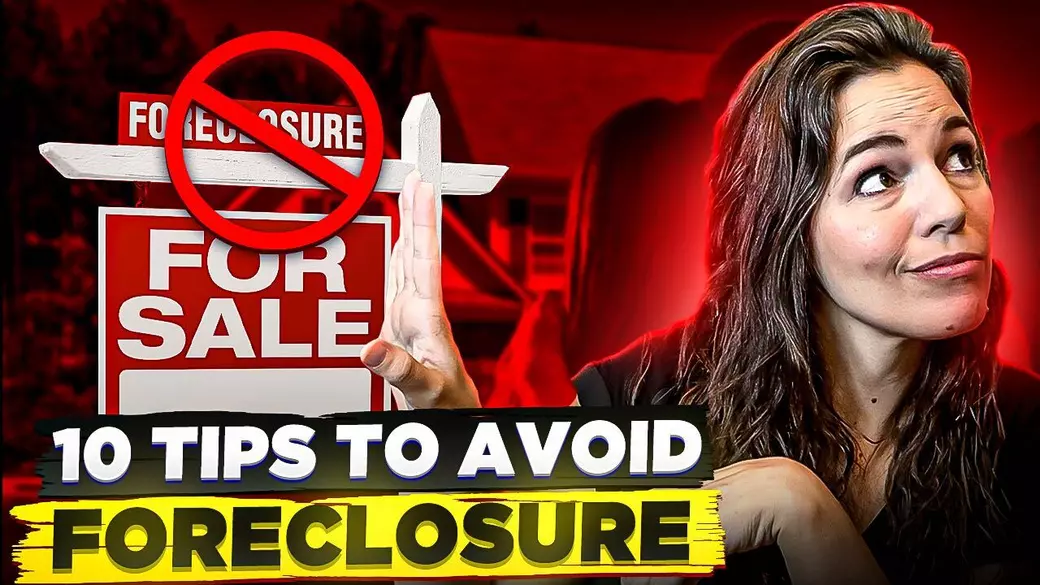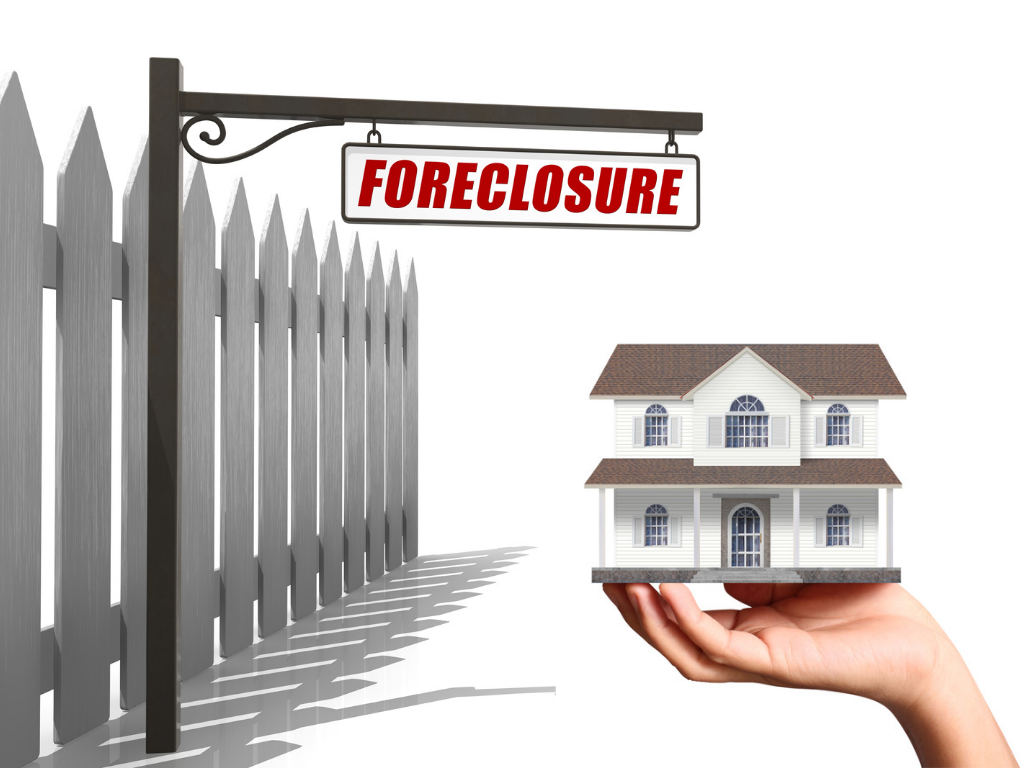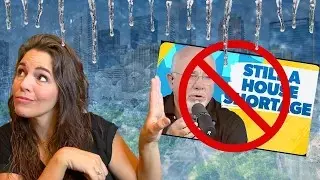How to Avoid Foreclosure: A Guide for Homeowners

Ways To Avoid Or Postpone Foreclosures
Foreclosure can be a terrible experience for a homeowner. It not only puts the homeowner at risk of potentially losing their home, but it may also damage their credit score and make it challenging to obtain new loans or credit in the future.
1. An Overview Of Foreclosure:
Foreclosure is a process that occurs when a homeowner misses payments on their mortgage, and the lender takes action to recoup the money owed by repossessing and selling the home.
This process can take several months or even years to complete, but it ultimately results in a homeowner losing their home to the lender.

2. Why Do Foreclosures Usually happen?
Foreclosure is something no homeowner wants to go through, and in most cases, the failure to make mortgage payments is due to an unexpected dip in finances or a change in the owner's circumstances.
A home may go into foreclosure for a variety of reasons, including:
- Loss of employment due to being fired, laid off, quitting, or being unable to work due to medical reasons
- Unexpected medical expenses
- Divorce or separation
- Unanticipated costs associated with the home's maintenance
It is important to remember that foreclosure is not always inevitable, and fortunately, there are ways to avoid or postpone foreclosure if you find yourself in this situation.
Therefore, it is essential to take steps to avoid or postpone foreclosure so that you can protect your credit score.
3. Ways To Avoid Or Postpone Foreclosure:
By following the tips mentioned below, you can save your home from foreclosure or at least buy yourself some time to figure out a plan.
1. Contact your lender:

It is always best to contact your lender as soon as you realise that you are unable to make your mortgage payment so that you can discuss the options available to you.
Options may include:
- Request a Postponement: This is the logical next step in getting your sale date pushed back. Request your lender and ask them to postpone the sale date. Then, keep in touch with them to keep the lines of communication open.
Many legal lenders have websites that include assistance pages for those facing foreclosure. Visit these and see what steps are available for you with them. Some mortgage holders are indeed very cold and indifferent, but on the other hand, many of them are not.
The smart ones understand how important ‘word-of-mouth advertising can be and how effective compassionately helping out their customers is for earning trust and gaining future customers.
- Forbearance of Loan Payment: Forbearance of loan payment refers to temporary financial assistance that your lender can offer in cases of hardship.
This may include temporarily reducing or suspending your loan payments, which can help you avoid foreclosure during periods of financial difficulty.
However, it is essential to note that this will typically only be offered for a limited period. You will be expected to resume making regular loan payments once this period ends. This will still harm your credit score, but it is better than foreclosure.
2. Reinstate the Loan with personal funds or borrowed funds from Friends and Family:

One option is to reinstate the loan with private funds or borrow funds from friends and family. This means you will need enough money to pay off the entire delinquent amount to keep your account current when you have the funds available.
- Reinstate the loan with private funds: Ultimately, the best option for avoiding foreclosure will depend on your financial situation. However, it is crucial to take a close look at your finances and see if there are any ways that you can improve your situation.
If you can make up any missed payments and get current on your loan, this may be the best option for avoiding foreclosure. However, remember that this process can be costly, and you may incur additional fees and penalties.
- Borrowed funds from Friends and Family: You may also avoid foreclosure by borrowing funds from friends or family to cover the missed payments and get current on your mortgage. This can be an effective way to avoid foreclosure in the short term, but it is essential to consider the long-term consequences of this decision carefully.
3. Request a loan modification or repayment plan from the lender:

Another option is to request a loan modification or repayment plan from the lender, which can help reduce your monthly payments.
This may involve reducing the interest rate, extending the loan term, or deferring some of your costs until later.
- Reducing the interest rate can lower your monthly payments and make them more manageable.
- A repayment plan: With a repayment plan, you can work out a manageable payment schedule with your lender. This can help you avoid foreclosure by giving you more time to pay off your debts.
- Extending the loan term: In some cases, extending the loan term can help reduce your monthly payments, making it easier to keep up with your mortgage payments. However, this may also mean you will pay more interest over the long term.
- Deferring some of your costs until a specified date: You may also be able to defer some of the costs, such as property taxes or insurance, until a later date. This can help you stay current on your mortgage while also reducing your monthly payments.
4. Temporary Restraining Order on Foreclosure:

Sometimes, delaying or even avoiding foreclosure may be possible by filing for a temporary restraining order.
This can involve asking the court to stop foreclosure until a settlement or other resolution is negotiated.
However, this will not necessarily stop the foreclosure process if you do not reach an agreement with the lender.
5. Declare Bankruptcy:

If all else fails, you may consider filing for bankruptcy. Bankruptcy can help protect your assets from creditors but also harm your credit score. It is one of the best Last-Minute strategies to Avoid Foreclosure.
For Example: If a foreclosure sale is scheduled within the next few days, filing for bankruptcy is the best way to stop it immediately.
- The automatic stay will halt the foreclosure proceedings. When you file for bankruptcy, "automatic stay" takes effect immediately. The stay acts as an injunction, preventing the bank from foreclosing or attempting to collect its debt. As a result, all foreclosure activity must be halted.
- The bank may file a motion to vacate the stay. The bank will almost certainly try to have the stay lifted by filing a motion asking the court for permission to proceed with the foreclosure. Even if the bankruptcy court grants this motion and allows the foreclosure to proceed, it will be delayed by at least a month or two. This should give you enough time to talk to your bank about alternatives to foreclosure.
Note:
Many homes can usually stay under bankruptcy. And if homes can usually stay within the bankruptcy. This means that the homeowner can keep their home even after filing for bankruptcy, although they may need to enter into a repayment plan with their lender to satisfy the debt.
6. Sell Your House Retail:

Another option is to sell your house directly to a retail buyer. This can help you avoid foreclosure and get cash in hand, even if you need to sell your house for less than the market value.
Many online platforms and real estate companies can help you find a buyer quickly, even if you face foreclosure.
You may sell the house retail for a profit or as a short sale.
- Sell for a Profit: Selling for a profit can allow you to pay off the loan balance and walk away with some profit left over. However, if your house has lost value, then consider a short sale.
- Short Sale: A short sale is an agreement between the borrower and the lender to sell the property on the market. The home is typically sold for less than the outstanding mortgage balance, with the difference paid to the lender by the borrower.
This is preferable to foreclosure because the borrower will be able to:
- Control the sale's terms.
- Directly put the house on the market.
- Get a higher price than you would typically get at foreclosure.
- Prevent a foreclosure notice from appearing in the newspaper.
- They should avoid having a foreclosure reported on their credit report.
7. Deed in Lieu of Foreclosure:

A deed in lieu of foreclosure is an agreement between a homeowner and their lender. It allows the homeowner to voluntarily surrender the act to their home to their lender, thus avoiding foreclosure.
This will still harm one’s credit score, but it is typically less damaging than going through the foreclosure process.
This option's advantage is that it allows the homeowner to avoid some of the fees associated with foreclosure and may enable them to receive a financial incentive from the lender.
However, it is essential to note that not all lenders accept deeds in lieu of foreclosure, and it is best to speak with your lender about this option before proceeding.
8. Sell Your Home to an Investor:

Selling your house to an investor can be a great option if you need to sell your home quickly. An investor will buy the property for cash and will not require any further payments or negotiations.
Investors can give you two main options for selling your home:
- Cash Offer: An investor will typically be able to offer you a cash price for your home much lower than what you would receive from a retail buyer. However, an investor can be a great option if you need to sell your home quickly and are willing to accept a lower price.
- Subject to the existing mortgage: Another benefit of selling your home to an investor is that they will often be able to take over your existing mortgage. This can help you avoid the hassles and costs of refilling your mortgage and improve your financial situation by lowering your monthly payments.
9. Apply for Loss Mitigation:

Another option to consider is loss mitigation, which refers to financial assistance that may be available from the government or your lender.
This can include programs such as the Home Affordable Modification Program (HAMP), which provides help to struggling homeowners. Through these programs, you can lower your monthly payments or delay foreclosure proceedings.
10. Seek Legal Advice:

If all else fails, it may be beneficial to seek legal advice from an experienced attorney who can guide you through the foreclosure process.
An attorney can help you understand your state's laws and advise you on the best action to avoid foreclosure. An attorney can also help to negotiate a settlement with the lender.
Wrapping Up:
These are just some of the ways that will help you to avoid or postpone foreclosure. Every situation is unique, and you should consider your options before making any decisions.
It is important to remember that you have options when facing foreclosure, and taking advantage of these alternatives could save your home and provide financial relief for years to come.
Take time to explore all available options before making any decisions. You can find the best solution for your unique situation with research and professional guidance.
Good luck!
Categories
Recent Posts





![COMING TO SAN ANTONIO [February 2023 Edition]](https://cdn.chime.me/image/fs/cmsbuild/2023313/15/w600_original_9f80abf8-54b1-409e-9242-c658c9a53854-png.webp)




GET MORE INFORMATION

